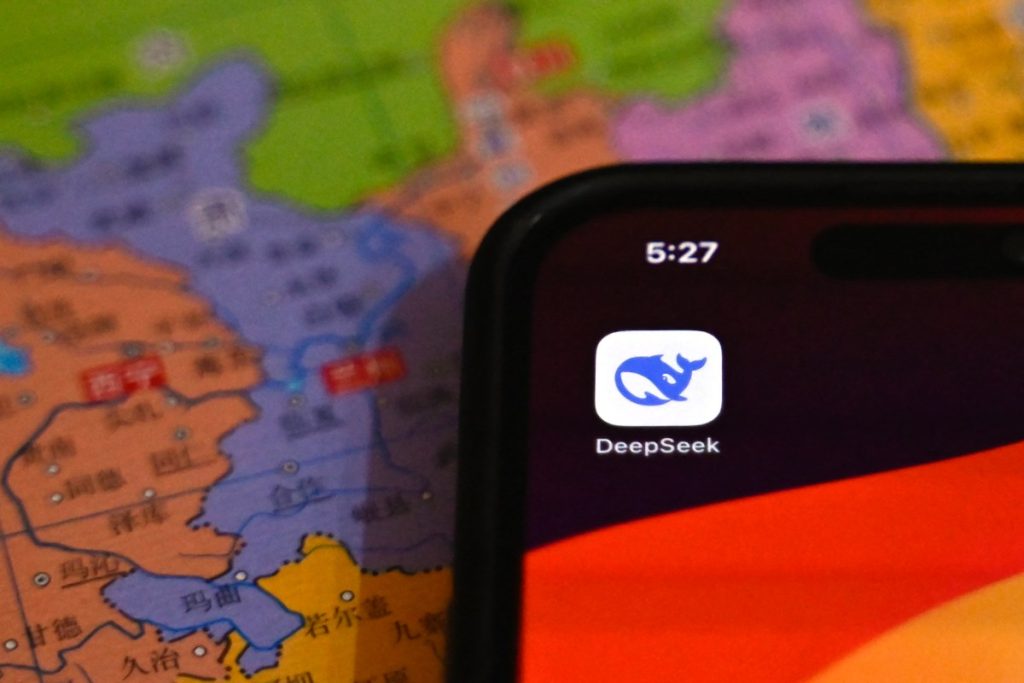A growing concern over data privacy has led a German data protection official to urge major tech companies Apple and Google to remove the Chinese AI application DeepSeek from their app stores. This call comes in light of allegations that DeepSeek is unlawfully transferring users’ data to China, a possible violation of European Union data protection laws, according to a report by Reuters.
Data Protection Concerns
Meike Kamp, Berlin’s Commissioner for Data Protection and Freedom of Information, expressed serious concerns regarding DeepSeek’s data handling practices. During a communication with both Apple and Google, she stated that DeepSeek failed to provide “convincing evidence” that user data is adequately protected, a requirement under EU legislation. This absence of transparency raises alarms regarding how user information is processed and stored.
Kamp highlighted the broader implications of the situation, noting, “Chinese authorities have far-reaching access rights to personal data within the sphere of influence of Chinese companies.” This indicates a potential risk for users in Germany whose data may be subject to external scrutiny, further complicating the already intricate landscape of data privacy for international applications. As a result, both Apple and Google must now deliberate on whether to comply with these urgent demands.
Previous Actions Against DeepSeek
This is not the first time DeepSeek has faced scrutiny in Europe. Earlier in the year, Italy imposed a ban on the app, echoing similar data protection concerns raised by consumer advocacy groups. The Italian authorities stated that the app did not meet necessary criteria for data protection. This pattern of scrutiny across European nations signals a growing vigilance regarding data privacy, especially concerning applications developed in countries with differing regulations.
DeepSeek’s operators have not adequately addressed the requirements laid out by the EU, despite the Berlin Commissioner’s request for compliance or removal from the market. The app’s privacy policy explicitly details how it collects and stores user information, raising the question of whether international users can trust it. The fact that this data is housed in China, along with DeepSeek’s operational base, adds another layer of complexity to the issue.
- Privacy Policy Transparency: DeepSeek’s privacy policy describes its data collection processes, yet lacks clarity on how this data is protected.
- Geopolitical Implications: The calls for removal from app stores by German authorities reflect broader geopolitical tensions regarding data sovereignty and privacy.
Industry Impact and Market Reactions
The implications of this action could resonate within the tech industry, especially among applications that collect significant user data. With data privacy becoming an increasingly important issue for consumers, tech firms might need to reevaluate their privacy practices and compliance measures, particularly when dealing with international applications that gather personal information. In a recent survey by Statista, 64% of European consumers reported concerns over data privacy, illustrating a rising demand for transparency in how personal information is handled.
As the situation continues to develop, the response from major tech companies is awaited. Apple and Google both have a vested interest in protecting their reputations and ensuring compliance with local laws. They have yet to make an official comment regarding the Commissioner’s request, prompting speculation about their possible responses. Given the escalating scrutiny, compliance with local regulations may become a core focus for these companies, shaping their operational strategies in Europe.
The growing friction between regulatory bodies and tech firms may set a precedent for future data protection policies. The implications of these actions could extend beyond DeepSeek, influencing how other international apps operate within the EU and prompting similar measures in other regions.
As the digital landscape evolves, ensuring data protection will likely remain a contentious issue, necessitating a balance between innovation and user privacy. The decision by Apple and Google in response to Berlin’s demands could either reinforce their commitment to user protection or signal a hesitation to act against popular applications, creating a complex interplay of market pressure and regulatory compliance.

